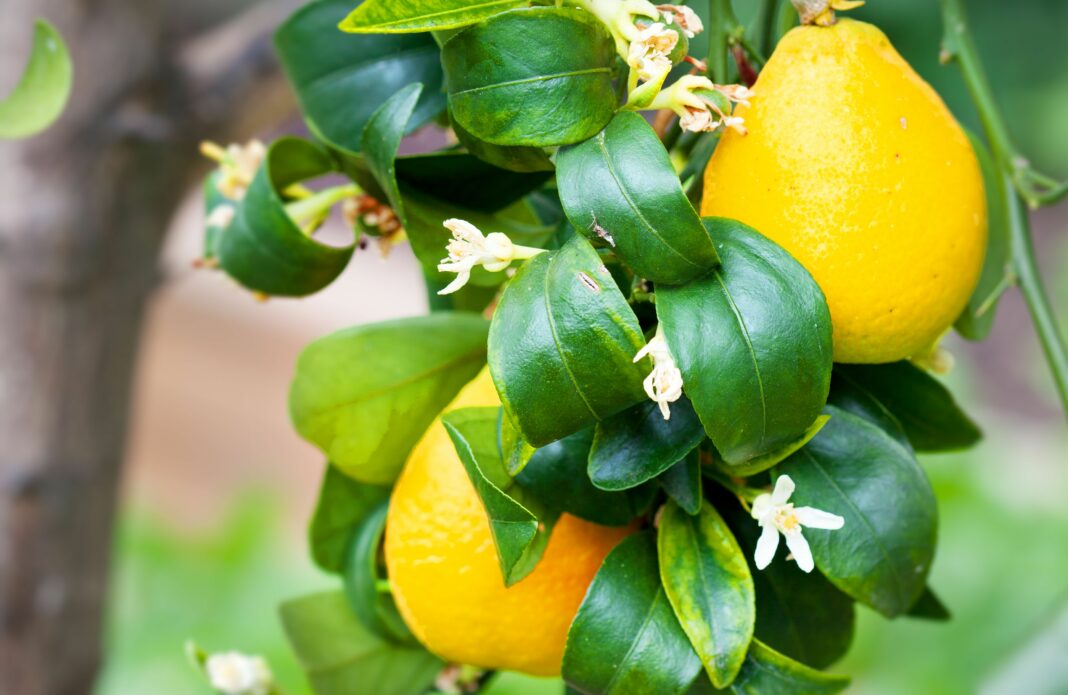Lemon Tree Leaves Curling – 5 Causes and How to Fix the Problem
Introduction
Lemon trees are a popular choice for home gardeners due to their fragrant blooms and delicious fruit. However, if you notice that the leaves of your lemon tree are curling, it could be a sign of an underlying issue. In this article, we will discuss five common causes of lemon tree leaves curling and how to fix the problem.
1. Water Stress
One of the most common causes of lemon tree leaves curling is water stress. If your lemon tree is not getting enough water, the leaves may curl and become dry and brittle. On the other hand, overwatering can also cause the leaves to curl due to root rot.
To fix this problem, make sure you are watering your lemon tree regularly and consistently. Check the soil moisture levels with your finger before watering and adjust accordingly. It is also important to ensure proper drainage to prevent root rot.
2. Nutrient Deficiency
Lemon trees require a balanced supply of nutrients to thrive, and a deficiency in essential nutrients such as nitrogen, potassium, or magnesium can cause the leaves to curl. To prevent nutrient deficiencies, fertilize your lemon tree with a complete fertilizer specially formulated for citrus trees.
If you notice signs of nutrient deficiency, such as yellowing or curling leaves, consider adding a foliar spray to provide a quick boost of nutrients. Be sure to follow the instructions on the fertilizer package for best results.
3. Pests and Diseases
Pests such as aphids, spider mites, and citrus leaf miners can damage the leaves of your lemon tree, causing them to curl and distort. Diseases such as citrus canker or citrus greening can also affect the health of the tree and lead to curling leaves.
To address pests, regularly inspect the leaves of your lemon tree for signs of infestation and treat with insecticidal soap or neem oil as needed. Proper pruning and sanitation practices can help prevent the spread of diseases among citrus trees.
4. Environmental Stress
Environmental factors such as extreme temperatures, strong winds, or direct sunlight can put stress on your lemon tree and cause the leaves to curl. Make sure your lemon tree is planted in a location with sufficient protection from harsh weather conditions.
During hot summer months, provide shade for your lemon tree to prevent sunburn and water stress. Consider using a windbreak to shield the tree from strong winds that can damage the leaves. Mulching around the base of the tree can also help regulate soil temperature and moisture levels.
5. Improper pH Levels
Lemon trees prefer slightly acidic soil with a pH level between 6.0 and 7.5. If the pH of the soil is too high or too low, it can affect the tree’s ability to absorb nutrients and cause the leaves to curl and discolor. Test the pH of your soil regularly and amend as needed to maintain optimal conditions for your lemon tree.
To adjust the pH of the soil, you can add organic matter such as compost or peat moss to increase acidity, or lime to decrease acidity. Monitor the health of your lemon tree and adjust the soil pH as necessary to promote healthy growth and development.
Conclusion
Curling leaves on your lemon tree can be a cause for concern, but with proper care and attention, you can address the underlying issues and restore the health of your tree. By identifying the root cause of the problem, whether it be water stress, nutrient deficiency, pests and diseases, environmental stress, or improper pH levels, you can implement targeted solutions to help your lemon tree thrive.
FAQs
Q: How often should I water my lemon tree?
A: Lemon trees prefer moist, well-drained soil. Water your lemon tree deeply once a week, adjusting based on weather conditions and soil moisture levels.
Q: Can I use pesticides to treat pests on my lemon tree?
A: It is best to use natural remedies such as insecticidal soap or neem oil to treat pests on your lemon tree, as chemical pesticides can harm beneficial insects and pollinators.
Q: How can I prevent nutrient deficiencies in my lemon tree?
A: Fertilize your lemon tree regularly with a complete fertilizer formulated for citrus trees, and monitor the health of the tree for signs of nutrient deficiencies such as curling leaves.




